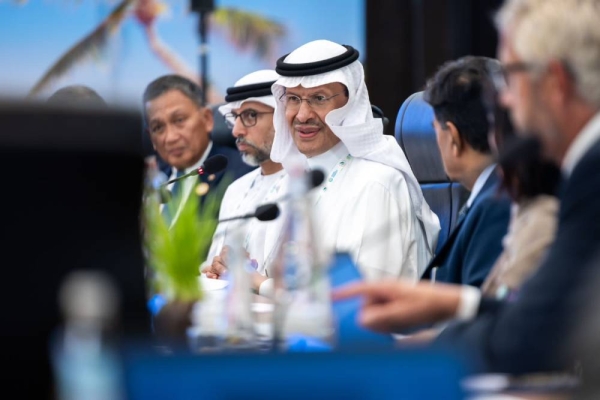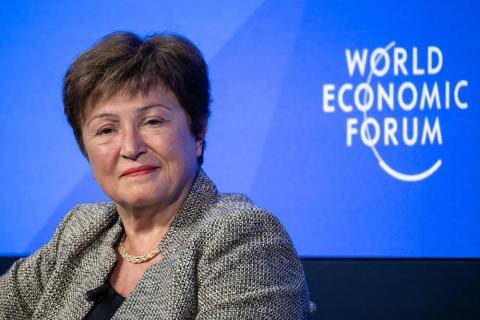
Expansion of Siemens" Dammam Energy Hub is a “trigger point” for the energy transition in the Kingdom
RIYADH: Saudi Arabia will be a major player in the future hydrogen economy in the years to come, according to Siemens Energy CEO Christian Bruch.
“Many of the elements required for the hydrogen economy are present in the Kingdom,” Bruch said in an interview with Arab News. “You have a resource of solar energy and good existing infrastructures. If I look five or 10 years ahead, I expect that hydrogen will play a key role.”
Green hydrogen power is one of the growth areas for Siemens Energy, which recently signed a memorandum of understanding to develop a hydrogen-based industry with export potential with Egypt’s state-owned Egyptian Electricity Holding Company.
The expansion of the company’s Dammam Energy Hub (SEDH) is a “trigger point” for the energy transition in the Kingdom and increasing the talent pool of skilled local workers in the industry, said Bruch.
SEDH, which was established 19 years ago, is the largest gas turbine and compressor manufacturing facility in the region.
“We have 650 employees working in Siemens Energy [in Saudi Arabia], and we have a localization of about 40 percent,” he said. “All of them are very talented people, and this is something we continue to build.”
Bruch said travel restrictions imposed across the globe during the COVID-19 pandemic has underlined the need for all countries to ensure they have a highly-skilled domestic workforce.
“This is why the facility is so important,” he said. “It’s an opportunity to train employees on the operational side to improve the local workforce. In a world emerging from the pandemic, it’s important to ensure reliable service to our customers. We are also localizing the supply chain in terms of equipment.”
Saudi Arabia plans to generate 50 percent of its energy from renewables by 2030, up from less than 1 percent at the beginning of this year as part of its Vision 2030 initiative.
Under its National Renewable Energy Program, launched in January 2019, it will install 27.3 GW of mostly solar and to a lesser extent wind by 2023 and 58.7 GW by 2050.
In common with others in the sector, Bruch sees the Kingdom’s shift from hydrocarbons as a key area for Siemens’ future growth but added established energy manufacturing plants and technology still had an essential role in the transition.
“There are a lot of things coming on the renewable side, and that’s very good, but the much more difficult task to do is how you save the existing assets we have today and make them better,” he said.
“This facility [SDEH] can play a critical role in that because it is where we can join teams together to help find solutions. It can be a bridge from today’s world to the future.”
As an example, Bruch highlighted a project Siemens Energy is developing in the Kingdom, which will enable its customers to use small amounts of hydrogen to power existing gas turbines.
“This is a bridge to using existing installations and making them more efficient and carbon-free,” said Bruch. “The focus must be on smart solutions and efficiency for our products, combined with the ability to do a lot more things locally.”












